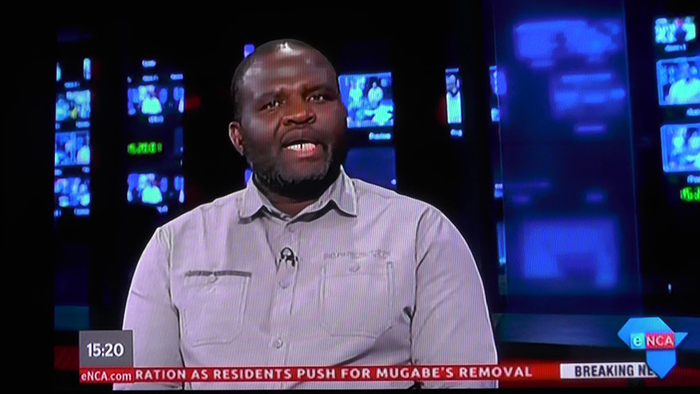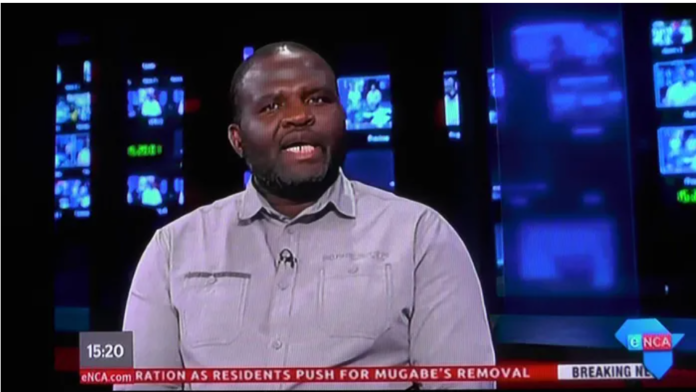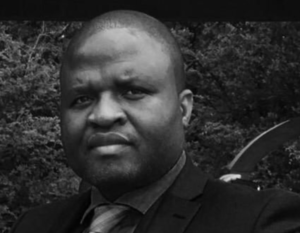By Tinomudaishe Chinyoka
A few days ago, the President said that observing the rule of law is not something we need to do for the purpose of pleasing other countries, but rather something we need because it is proper for ourselves. These are poignant words, especially as they come at a critical point in our history.

Over the past week, we have witnessed a cascade of ‘prohibition orders’ issued by the police against planned MDC Alliance demonstrations.
From Harare, Bulawayo, Gweru, Masvingo, Mutare etc, the police received notification of intention to demonstrate, reflected on them, assessed them and all came to the same conclusion that the demonstrations were likely to cause violence and issued the necessary prohibition orders.
Now, let us pause and state some necessary truths. Firstly, given that motormouth Job Sikhala announced two weeks previously that they were giving the President a two week ultimatum or they would remove him by force, the police were entitled to believe that these demonstrations, given their intended geographical spread, were meant to achieve that very purpose: seek to remove an elected president through unconstitutional means.
Secondly, the MDC Alliance suffers from a catastrophic lack of strategic thinking. Zimbabwe is not Harare, Bulawayo, Gweru, Mutare etc. It is also Uzumba, Dotito, Gwatemba, Chikwarakwara, Chikombedzi, Kezi, ChaChaCha etc.
Exactly why no demonstrations were planned for these areas, where there is no history of violent protest (what the police cited for the violence in January 2019) and therefore unlikely to be prohibited on the basis of previous conduct is for the lawyers in that organization to determine.
They protest when their electoral losses are ascribed to their being an urban party in a country where some 70 percent of the electorate is rural, but by their actions the MDC Alliance uses the space in between elections to prove precisely that point.
Thirdly….no, this would end up being about just how extraordinarily inept the opposition is, which is true, but not the point of this piece.
The right to freedom of assembly is one of the key political rights that we as citizens have. The ability to tell those in authority that the citizens are unhappy or happy about something is fundamental to political communication between those in authority and those that have given them the power to govern.
It is a right that must be protected jealously. Crucially, it is a right, not a privilege. The notification procedure in the law is not meant to be read as a request for permission, and must never be treated as such. Instead, it is advance notification for law enforcement to put in place such measures as are necessary to facilitate the enjoyment of the right.
What does that mean in practice?
Simply this: the same reasons used by the police for issuing the prohibition notices are the very reasons why notification is necessary, why the demonstrations must have been facilitated and why the prohibition notices are troublesome.
In prohibiting the demonstrations, the police cited the problems in January 2019. Well, the notification procedure is not intended to make the police say “you got to enjoy this right last time and you abused it so, tough luck”.
Instead, the police are required, I think, to ask themselves “given that there were problems last time and in light of this new notification for an assembly in the same locale, what extra measures can we take in order to facilitate the enjoyment of the right while avoiding those problems?”
It is not rocket science to devise measures to make protests trouble free. For example, the police could have proposed different routes, training of marshals, different dates or a combination of all. Take Harare for example, they could have told the marchers to start at Simon Muzenda and Robert Mugabe, (near Roadport), walk down Robert Mugabe all the way to the open space behind Sheraton Hotel, get Chamisa to do his showboating and misogynistic jokes about donating Ndebele women as retirement gifts, and from there everyone goes home. They could have insisted on marshals at every intersection, working with the police, or even a human chain of said marshals on both sides of the street from beginning to end.
In order words, a facilitative as opposed to prohibitive approach would have been more helpful. What happened, seen as a whole, appears grubby and just too fantastic as a coincidence to be coincidental. How does an objective assessment of risk in disparate locations yield the exact same result?
I am not sure that we do a lot of good to our country’s reputation when we issue a blanket ban on democratic processes. I am not sure that we advance the rule of law when we appear to be afraid to listen to alternative voices. I am not sure that we demonstrated through this blanket ban that we know that “rule of law” means anything but “rule by law”.
The MDC Alliance is not a serious threat to the elected government, it is not likely to come up with anything resembling an election winning formula anytime soon. Plus, the fissures brewing therein, with Biti clearly waiting to plunge the knife into Chamisa’s back and the latter scared to follow his natural instincts and be a true statesman by embracing dialogue for fear of his Vanguard and the lot that Sikhala talks to, their fortunes are going down, not up. But, when you take a bazooka and claim that you are going to hunt a fly, people are entitled to think that you might actually secretly know that far from it being a fly, your foe is a fire breathing dragon.
I have argued before that the ultimate show of power is that, having the power to do something against another’s interests, you choose not to do it. Of course, one can only work with what one has, and I have said that the opposition is not endowed with must strategic thinking. All the same, that is no excuse to keep falling for the one trick they do have: embarrassing the country in the eyes of the world.
No matter how unlawful a demonstration is, being seen all over the world pulverizing an unarmed woman with a baton stick will never make for good optics. Pictures of policemen in riot gear wielding their baton sticks and citizens laying prostrate on the streets are not easy to explain away, and suggesting as some tried that it had nothing to do with the police is just silly.
While the law allows the use of force to disperse unlawful gatherings, such force must be reasonably necessary and proportionate to the law enforcement objective. I will give an example: say one protestor is holding a machete and is charging at a police officer while in a group of other protestors who are unarmed, it may be lawful to shoot the one holding the machete as he poses a threat to life, or might cause serious harm. But say after firing one bullet (every single discharge of a bullet in this scenario must follow the same proportionality, reasonability and necessity assessment) they all turn back to run, any bullet discharged thereafter is unlawful.
So, back to our baton sticks. Once the person is fleeing, or has been apprehended, or is on the ground not resisting, or being helped into a police van, or otherwise not resisting dispersal, there is zero reason to use the baton stick (there is a case to be made about whether that tool is proportionate in the first place but that’s for another publication), because there is no legitimate law enforcement objective.
So, having an opposition that has only one trick they can use, the police fell for it and issued a cascade of prohibition notices the effect of which is to tell the whole world that we have an undeclared state of emergency in Zimbabwe.
So crude were the notices that in at least two instances, they were issued well into the night before the date of the marches, meaning that people who weren’t aware of the notices because they had already travelled to the venue were caught up in an illegal march which they hadn’t known would be illegal when they set off from their homes.
Having created this position, the police should have been more reflective in their approach, and explained calmly to the people that their march was no longer happening. Or, get the conveners to come and inform their people that the march was not going ahead.
The resort to the baton stick as a mode of communication demeaned us as a country in the eyes of the world, and could have been avoided. SB Moyo is trying really hard to fix our country’s image, but by our actions we are not helping his efforts at all.
Yes, the MDC Alliance might not be the most strategic of organizations, but all the people in that party have one quality that we must never lose sight of: they are citizens of Zimbabwe. That gives them the same rights and entitlements as the rest of us. Beating an MDC supporter who might be taking part in an unlawful protestor is still beating a citizen: whose rights might not make such action lawful.
Banning an MDC Alliance demonstration might be viewed as a desirable outcome to avoid a repetition of something that happened in the past, but it cannot be a default setting. Because January 2019 happened, are we saying that the MDC Alliance can never protest, ever? Is that the road we want to take as a country? That one strike (pun intended) and you are out? My instincts say that we would not like the country we find at the end of that road.
I might not like the MDC Alliance’s tactics of inviting international ridicule on us all but l don’t want to live in a country where that means they cannot associate or assemble, ever. I might not like that the MDC Alliance invited sanctions against Zimbabwe but l don’t want to live in a county where by our own actions we provide some justification for the very same sanctions.
I might not support the MDC Alliance but l don’t want to live in a country where they are made to feel like their rights don’t matter. I might not want the MDC Alliance to ever win an election in Zimbabwe but I don’t want to live in a country where that is not the choice of the citizens but a fiat created by a systematic denial of constitutional rights which must accrued to every Zimbabwean. I might not like the politics of Job Sikhala but l don’t want to live in a country where by our actions to disenfranchise fellow citizens we create an audience for his views.
I don’t know, but l think that on this cascade prohibition thing, the police got it wrong. And l think every one of us, when given the power to make decisions, must recall exactly what our president said: “The rule of law observance is not needed for the purpose of pleasing other countries, we need it because it is proper for ourselves.”
Tinomudaishe Chinyoka is a Harare based lawyer

